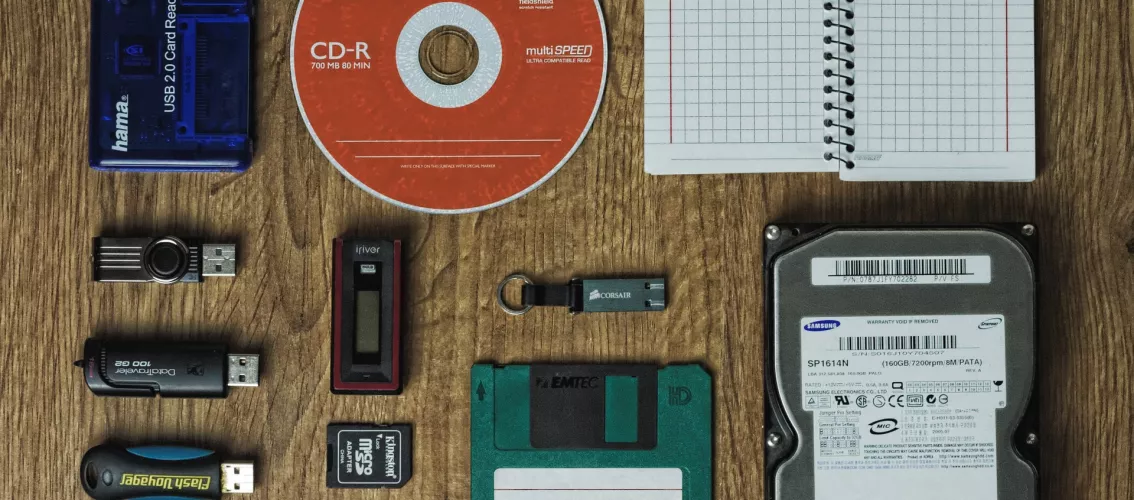Personal computer backups: should you consider off-Cloud solutions?

Welcome to 2023, where your personal collection of cat photos is likely to contain more information than the sum of all recorded human knowledge for the past several thousand years. Don’t get us wrong, we love our cats and our cat photos, and this, really, is the point of this post. Stored in our various devices are treasure troves of invaluable photos, videos, documents, and other information. And if you’ve ever lost a phone or laptop hard drive, you may be familiar with the feeling of loss.
This is why most devices these days contain some sort of cloud backup, and even much of the software we use stores our data remotely.
But is this always for the best? Sometimes, you may want to consider keeping your data off the cloud, and we have. Here are some reasons we’ve considered when making the decision.
Why keep your backups off the Cloud?
There are lots of arguments for off-the-cloud backups! Privacy and security tend to be at the forefront. Entrusting your private information to a third party is a big leap of faith for some of us. You need to trust that the photos, videos, etc. are transported securely so they can’t be stolen in transit. You need to ensure that it’s all stored in a way that won’t damage it, and that it’s encrypted with keys only you can access. In some countries, it’s understood that this is not the case since your data on the cloud must always be available to, for instance, law enforcement. To do this, your cloud provider has the means to decrypt your data when asked to do so. The master keys necessary to do so can be leaked and abused by a malicious third party.
Another most common reason is Cost. Some of us have tens of thousands of photos (not all of them cat photos) spanning decades, and to store all of this on the Cloud would cost an arm, a leg and at least a couple of kidneys (they grow back, right?). Cloud costs are a driving factor even on the corporate level, and, for instance, Google Cloud just missed its revenue mark because of people trying to reduce their bills.
Off-cloud solutions also offer higher flexibility and versatility. You control what you back up, the method, the encryption, and the same backup solution or device can back up all your devices and all their data, not just what the cloud provider supports.
Speed is a concern to a lot of us, especially those with sluggish upload speeds at home. Every file you back up will have to be uploaded to the Cloud provider over the Internet, and this can take a while. With your own backup system, files remain on your local network, and that’s often tens of times faster than your broadband connection.
Why would you backup off-Cloud?
We’ve traditionally used tapes, CD-Rs, DVDs, Blu-rays, FireWire or USB hard drives as storage media for our backups. These days, the best solution would probably be to invest in a personal Network Attach Storage (NAS) device (most of them conveniently double as media players, music streaming device, security appliance, home automation servers etc. and can act as your private cloud). If you have a spare PC, you could even make your own NAS device by installing NAS software and a bunch of solid state ‘disk’ drives. NAS devices (even the software for roll-your-own ones) have comprehensive backup features, and most of them allow you to dump backups onto an external disk. They’re great for a household with multiple people and devices.
With control over your backups come some complexities. Automating the backups is one of them: most software for computers allows this; phones and tablets may be a little harder. Keeping backups off-site is another one. Store at least one copy of your files somewhere that’s not your flat or house. We have mutual agreements with friends and family where we keep some of their files, and they keep some of ours. Entire companies used to do this too, once.
Maybe it’s not worth it.
The whole point of this article is that one size rarely fits all, and Off-Cloud backups may not be your thing! Cloud backups may be more limited in what they can do, but they can offer higher redundancy for your data. They’re a great protection against natural disasters that may damage your home (and your local backups). They’re also much less hassle, with many devices defaulting to backing up onto the Cloud.
And of course, Cloud backups don’t involve running and maintaining your own hardware or having to worry about your free disk space, or your spouse complaining about the fans and blinking lights. And if you’re a reclusive cat lover, you don’t ever have to leave home to take a spare backup to a friend’s house.
Is there a middle road?
Yes, there is! At CIVIC, our backups are a combination of local off-cloud backups with bespoke infrastructure, and Cloud backups which we offer to clients who need the extra safety and redundancy, while also understanding the potential risks involved.
The same can be done at home: NAS devices and software can actually utilise Cloud services to store some or all of their backups. The exact way to balance what is kept local and what is uploaded depends on you and your needs, but the flexibility to have both solutions is there. This may be a great way to mitigate some of the Cloud costs and keep backups safer.
Conclusion
Your personal data is invaluable, and backups are a necessity. The volume of our data is such that Cloud backups may be a blessing and a curse at the same time. It’s important to remember that going off-cloud is still an option and might help you find a balance between security and convenience, and even greatly improve both!
At CIVIC, this flexibility is something we greatly value. We offer our clients a customised choice of backup policies informed by their own application and requirements. Contact us, and let us help you with your own backup policy!



